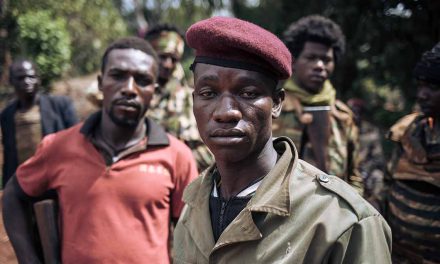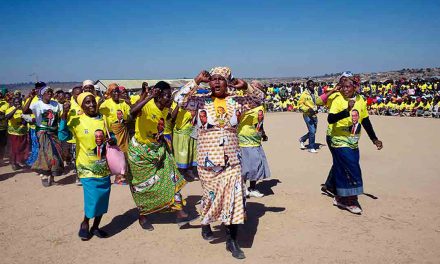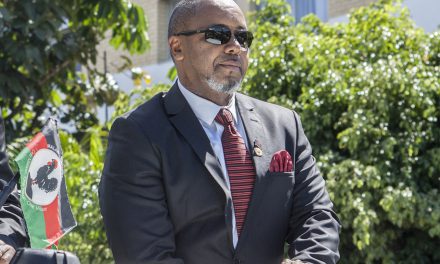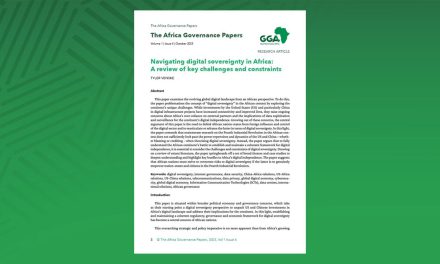Angolans will head to the polls on 24 August. On the surface, these will be the most competitive Angolan elections yet.
In 2017, the incumbent Movimento Popular de Libertação de Angola (MPLA) — in power since independence from Portugal in 1975 — won the elections with a 61% majority. Pundits are increasingly expressing the view that the main opposition party, União Nacional para a Independência Total de Angola (UNITA), is proving more formidable than in past elections. But it has been refused permission to register on the ballot with two other minority parties as a coalition.
Adalberto Costa Júnior won the race for UNITA’s presidency in 2019, with 96% of delegates’ votes. UNITA was run by Jonas Savimbi from 1976 until his death in 2002. UNITA’s internal politics have been interesting, with one of Savimbi’s sons — Araújo Kanganjo Tão Savimbi – supporting Alcides Sakala Simões in theat 2019 party race. Angola’s supreme court subsequently annulled those results and elections had to be held again in 2021, but Costa Júnior again came out ascendant.
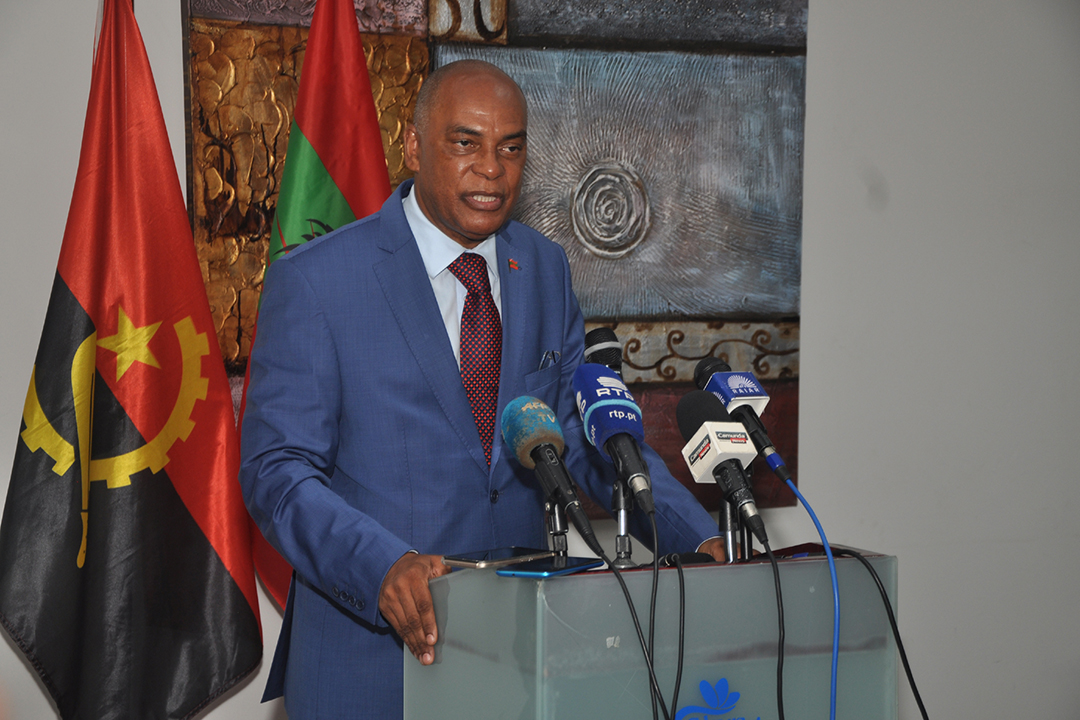
Adalberto Costa Junior, president of the National Union for the Total Independence of Angola (UNITA), during the swearing in ceremony of the United Patriotic Front (FPU), a coalition to challenge the People’s Movement for the Liberation of Angola (MPLA) in the upcoming elections, Photo: Julio PACHECO NTELA/AFP
Until relatively recently, the MPLA has been quite adept at leveraging the internal politics of UNITA to advance its own interests, largely through a divide-and-rule strategy of infiltration and co-optation. It is not clear that the MPLA will be able to do so this time.
An electoral opinion poll run by Angobarometro, a local Angolan agency, estimated support for UNITA and a third party — the Bloco Democrático — combined at 64% in early February. The MPLA polled at a mere 28%. Leader João Lourenço, who succeeded José Eduardo dos Santos in 2017, polled at a personal approval rating of 26%, less than half of the rating ascribed to Costa Júnior (56%).
Despite promises to stop corruption and grow the economy, Lourenço has faced an uphill battle, having inherited a fiscal cliff and an economy in recession. Angola’s 2021 debt to GDP ratio was at 108% in 2020 but higher oil prices have aided a recent recovery. Angola remains highly dependent on oil, accounting for 92% of all exports and contributing roughly half the value of total GDP.
The recent death of Dos Santos, who ruled the country with an iron fist from 1979 to 2017, has not helped Lourenço’s cause either. Dos Santos had placed family members ahead of party loyalists in key positions such as the head of Sonangol, the state-owned oil company, and head of the sovereign wealth fund. Lourenço then purged Dos Santos’s daughter, Isobel, and son Jose´ Filomeno respectively from these positions when he came to power. The family then prevented Lourenço from providing Dos Santos with a state funeral in Angola ahead of the elections to avoid “unacceptable political use” of the event. This denied Lourenço the opportunity to reunite the party and galvanise electoral support.
An Afrobarometer survey run in May 2022 — three months after the Angobarometro poll — placed the MPLA ahead of UNITA, but only by a small margin of seven percentage points. Twenty-nine percent of those polled said they would vote for the MPLA, while 22% would vote for UNITA. A full 31% of respondents refused to answer, making outcome prediction difficult.
These elections will take place against the backdrop of significant geopolitical uncertainty. Russia’s invasion of Ukraine earlier this year has produced a protracted war, with the West supporting Ukraine indirectly by providing weapons and intelligence support. African countries, for a host of complex reasons, largely refused to vote directly against Russia on three recent international occasions. China, similarly, has refused to condemn Russia directly. In response to severe western sanctions, Russian President Vladimir Putin is turning up the pressure on European nations that have hitherto become overly reliant on Russian gas.
This brinkmanship, which seems unlikely to end soon (although Russia’s economy is collapsing far more rapidly than the official narrative would admit), has pushed the international oil price to record levels last seen in late 2014. The Economist Intelligence Unit (EIU) has forecast Brent Crude to close out at $107/b by the end of 2022, declining to $69 by 2026. Despite the price drop, the EIU foresees economic growth of up to 5.1% by 2026 on the back of increased oil production to 1.4 million barrels a day (from a current level of only 1.153 million) and a slightly more diversified Angolan economy.
The European conundrum plays directly into Angola’s electoral landscape dynamics. With decreased oil and gas supplies from Russia (and increasing pressure to end all imports from the country), Angola has become an irreplaceable oil supplier of next resort for Europe. The European Union has not yet been invited to send an election observer mission to Angola. Even if that invitation materialises, it is not clear that it would place much pressure on the MPLA to ensure credible, free and fair elections.
The EU is reported to fear pushing Angola even deeper into Russia and China’s geopolitical hands. Angola has strong Cold War relations with Russia, which supported the MPLA’s civil war efforts against UNITA. After the end of the war in 2002, the country has entered numerous oil-for-infrastructure deals with China, to which it has become highly indebted.
As it stands, there are three major reasons to doubt that elections would be fully free and fair:
- First, the National Election Commission (CNE) is run by Manuel da Silva, who the opposition deems to be an MPLA deployment. UNITA tried to challenge his appointment in court but to no avail.
- Second, and related, is a concern that the supreme court, which annulled UNITA’s 2019 congress results, is run by an alleged ally and former aide of the president, Laurinda Cardoso.
- Third, the CNE has again picked a Spanish company, the Indra Group, to manage the vote-counting and tallying process. This company has run all of Angola’s previous post-2002 elections and has been accused of fraud by the opposition. In 2017, for instance, UNITA called for mass protests over the awarding of the tender, in secret, by the electoral board to this company.
International attention is largely focused on the Russia-Ukraine war, the global supply chain disruptions that the war has exacerbated and China’s aggressive response to US special envoy Nancy Pelosi’s recent visit to Taiwan. US President Joe Biden, reneging on election-trail promises, has also visited Saudi Arabia to try to ensure that the Organisation for Petroleum Exporting Countries increases production to keep oil prices below the $100 a barrel mark, but also to prevent a Russian turn by Saudi.
With the world’s eyes averted and democratic watchdogs paying attention to precarious geopolitical dynamics elsewhere, along with increased demand for Angolan oil, Lourenço may feel emboldened at his party’s electoral prospects. But the MPLA would also expect UNITA to make a significant international noise about any evidently fraudulent procedures.
Finally, these are only Angola’s fourth set of post-war elections, and the state remains highly securitised under Lourenço. Protests are likely to be met with relatively swift repression, and it remains to be seen what voter turnout on the day will be like.
An earlier version of this article appeared in the Mail & Guardian.
READ MORE: See our Angola Election Tracker here.
Dr Ross Harvey is a natural resource economist and policy analyst, and he has been dealing with governance issues in various forms across this sector since 2007. He has a PhD in economics from the University of Cape Town, and his thesis research focused on the political economy of oil and institutional development in Angola and Nigeria. While completing his PhD, Ross worked as a senior researcher on extractive industries and wildlife governance at the South African Institute of International Affairs (SAIIA), and in May 2019 became an independent conservation consultant. Ross’s task at GGA is to establish a non-renewable natural resources project (extractive industries) to ensure that the industry becomes genuinely sustainable and contributes to Africa achieving the Sustainable Development Goals (SDGs). Ross was appointed Director of Research and Programmes at GGA in May 2020.


